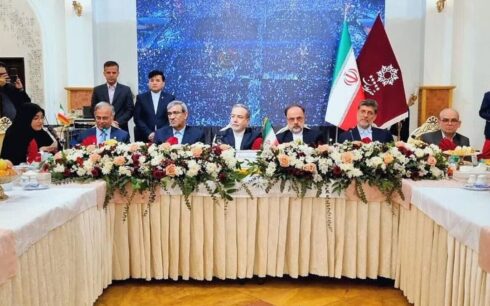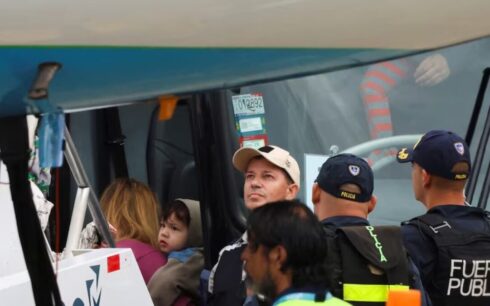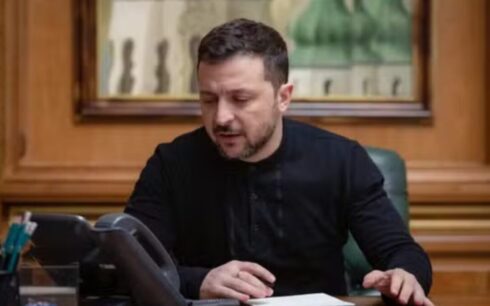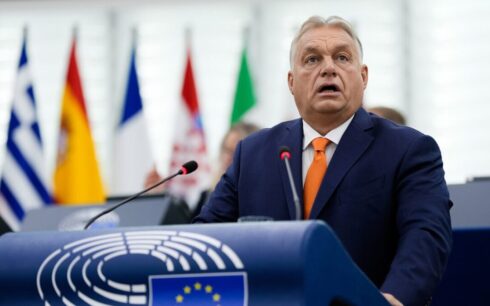BEIRUT, Lebanon — Russian and Syrian warplanes unleashed a barrage of airstrikes on the rebel-held city of Idlib in northern Syria on Sunday, as President Bashar al-Assad vowed to crush insurgents who had launched a bold offensive in nearby Aleppo.
The strikes, which residents said targeted densely populated areas in the center of Idlib, marked the second consecutive day of intensified bombardment in a region that has become a last bastion for Syria’s opposition. The area, home to nearly four million people, many of whom live in makeshift shelters near the Turkish border, has faced renewed violence after years of relative calm.
At least seven people were killed and dozens wounded in Sunday’s attacks, according to local rescue workers. The Syrian military and its Russian allies claimed they were targeting insurgent hideouts, denying allegations of civilian casualties.
The escalation follows a dramatic rebel offensive that began Friday night, when opposition forces stormed parts of Aleppo, Syria’s largest city before the war. The assault, described as the most significant challenge to Mr. Assad’s rule in years, forced government troops to retreat and left dozens of soldiers dead, according to state media.
In remarks published Sunday, Mr. Assad vowed to respond forcefully. “Terrorists only understand the language of power, and it is the language we will crush them with,” he said.
The Syrian military said it had regained control of several towns overrun in recent days but acknowledged that rebels, led by the Islamist group Hayat Tahrir al-Sham, had advanced into key areas. Hayat Tahrir al-Sham, a U.S.-designated terrorist organization, operates alongside Turkey-backed secular factions in the region.
The resurgence of violence underscores the fragility of the uneasy stalemate that has defined much of the conflict in recent years. Since 2020, front lines have largely frozen, with Mr. Assad’s government, backed by Russian air power and Iranian militias, reclaiming most of the country.
‘A City in Fear’
In Aleppo, which has been under government control since 2016, the streets were eerily quiet on Sunday, witnesses said, as residents stayed indoors, fearing a repeat of the brutal Russian-led bombing campaign that devastated rebel-held neighborhoods a decade ago.
Yusuf Khatib, a resident reached by phone, described armed rebel fighters waving opposition flags and setting up positions across the city. “It’s chaos,” he said. “No one knows what will happen next.”
In the affluent New Aleppo neighborhood, Ahmad Tutenji, a shop owner, said he was stunned by the speed of the army’s retreat. “I am shocked at how they fled and abandoned us,” he said.
The Syrian military, which has sent reinforcements to the area, appeared to be regrouping for a counteroffensive, according to pro-government sources. Rebel fighters claimed they had seized the industrial zone of Sheikh Najjar and were attempting to cut the army’s main supply route to Aleppo.
These battlefield claims could not be independently verified.
A Wider Conflict
The rebel advance has been bolstered by a coalition of fighters supported by Turkey, but the absence of Iranian-backed militias, which have traditionally shored up Mr. Assad’s forces, appears to have weakened the government’s defenses.
Iranian-backed groups, including Hezbollah, have played a pivotal role in helping Mr. Assad regain territory throughout the 13-year war. However, in recent months, Israeli airstrikes have targeted Iranian military installations in Syria, reportedly diminishing Hezbollah’s strength.
The Syrian conflict, which began in 2011 as a peaceful uprising against Mr. Assad’s rule, has killed hundreds of thousands of people and displaced millions more. While major fighting has subsided in much of the country, Sunday’s escalation highlights the ongoing volatility of the war’s final frontlines.
As the violence escalates, civilians in the affected areas face a deepening humanitarian crisis. In Idlib, families in crowded camps near the Turkish border brace for what many fear will be another devastating chapter in a war that shows no sign of ending.





